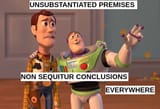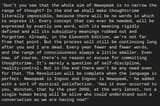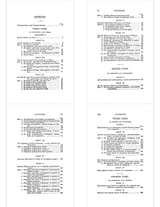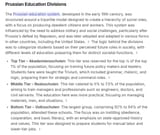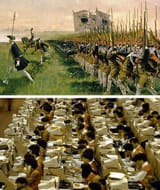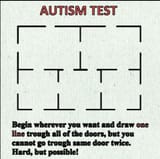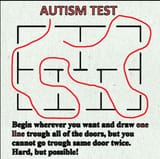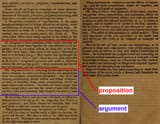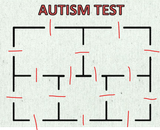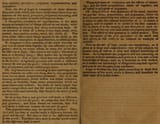>>512209251
That's part of the quote I posted in the picture. That sentence is good. But other than that sentence I don't remember there being anything about suppression of grammar, logic and rhetoric in that book. The rest of the quote in my picture is about decreasing vocabulary, which isn't really the same thing. In fact I want to object to the message, I think it's self-contradictory, because on the one hand it talks about having fewer words, but on the other hand it says:
>Every concept that can ever be needed, will be expressed by exactly one word, with its meaning
rigidly defined and all its subsidiary meanings rubbed out and forgotten.
Having one word for every concept means you have a greater number of words rather than fewer words. Having a word's meaning rigidly defined is not a bad thing. Having many subsidiary meanings of a word means having a lot of ambiguity, which is a bad thing. A greater number of subsidiary meanings for each word is associated with fewer words and more ambiguity, a smaller number of subsidiary meanings for each word is associated with a greater number of words and less ambiguity. I'm not impressed. We have too much ambiguity. But furthermore English has a lot of syntactic ambiguity compared to Latin, due to the more complex and refined grammar of the latter, which means in order to express the same thing in English you need to use a greater number of words.
The Trivium (grammar, logic and rhetoric) is the tools of thought, this is what is suppressed, again, I don't see how 1984 directly addressed this.
 8/4/2025, 4:28:30 PM
No.512205412
[Report]
>>512205907
>>512206278
>>512207842
>>512209247
>>512209251
>>512216831
>>512217379
>>512217602
>>512224717
>>512225512
8/4/2025, 4:28:30 PM
No.512205412
[Report]
>>512205907
>>512206278
>>512207842
>>512209247
>>512209251
>>512216831
>>512217379
>>512217602
>>512224717
>>512225512
